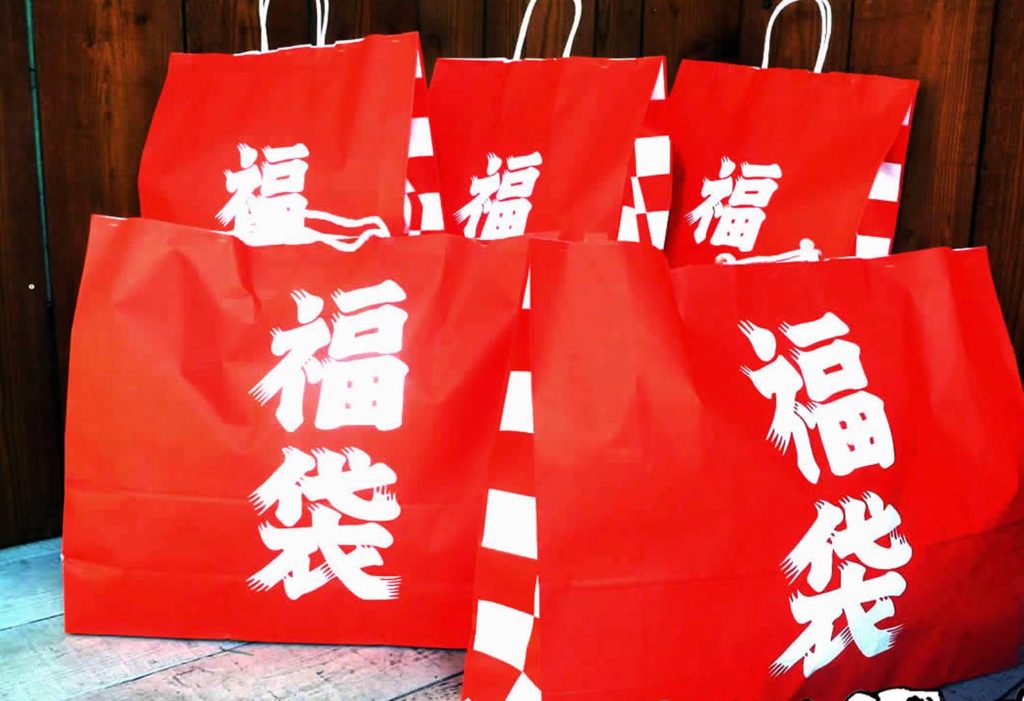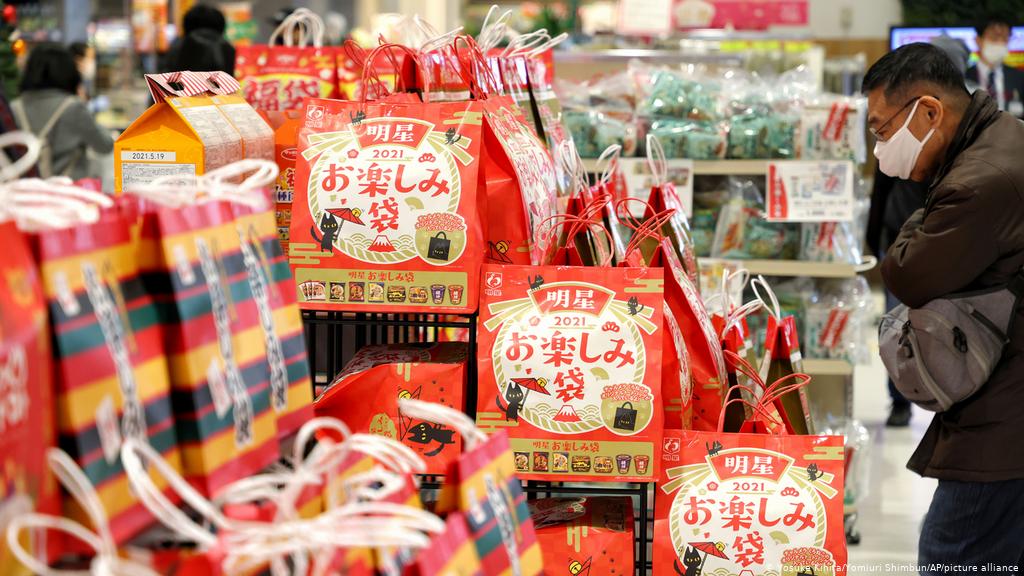Fukubukuro: What’s behind Japan’s ‘lucky shopping bags’ New Year custom?
“Concerned about social distancing during the coronavirus pandemic, Japanese shops have launched their traditional – and always popular – New Year shopping bags earlier than usual.“
The following written content via DW
The Japanese tradition of fukubukuro – or lucky bags sold at stores to ring in the New Year – began unseasonably early this year, as retailers attempted to avoid large crowds descending on their premises in search of a bargain.
The term fukubukuro is comprised of two Japanese words: fuku, meaning good fortune or luck; and fukuro (pronounced as bukuro), meaning bag.
Fukubukuro typically go on sale at the start of the New Year, with outlets ranging from high-end fashion boutiques to discount liquor stores bagging up a selection of items and customers taking a chance on the bag that they grab. There may be no way of knowing just what is inside, but the understanding is that it will be worth around double of what the buyer pays.

It is not unknown for squabbles to break out over the last remaining bags at some stores, particularly at shops selling famous brands of clothes, jewelry or cosmetics, and retailers say they are mindful this year that they want to spread the shopping frenzy out over a longer period in order to reduce the possibility of shoppers and staff being exposed to the coronavirus. They are also insisting that customers adhere to strict rules on social distancing and wearing masks.
Menswear, food, furniture
The Seibu chain of upmarket department stores was among the first to release fukubukuro, with lucky bags on sale in its menswear and food sections as early as December 26. Stores operated by Aeon Co. beat that by a day, with more than 400 stores across Japan offering food, including “wagyu” beef and sushi, as well as winter clothing items. Read more from DW.
Follow other related unbiased, interesting, and relevant news stories from News Without Politics





